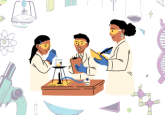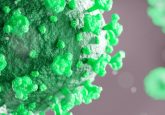Talking Techniques | HPV, epigenetics and cancer: sequencing for new insights and to correct healthcare inequality
Refer a colleague
In many regions of the world, HPV and its association with cervical cancer is a well-known but rarely considered issue, especially after the rollout of the HPV vaccine in the late 2000s. However, while this rollout significantly impacted cervical cancer rates where it was implemented, it was not universal and in many areas of the world HPV-induced cervical cancer remains a critical issue.
Cervical cancer is the leading cause of death for people with a cervix living in low-resource regions and on the continent of Africa, it is estimated that in 2020 as many people with a cervix died of cervical cancer as COVID-19.
In this episode of Talking techniques, supported by Oxford Nanopore, Senior Investigator Michael Dean and Post-baccalaureate Fellow Nicole Rossi, from the NIH’s National Cancer Institute (MD, USA), discuss their research into the relationship between HPV and cervical cancer. Expounding on the points mentioned above, they reveal the tremendous insights into cancer and immunology still to be gained, document the key tools used in their studies and explain how their work can be translated into more effective immunotherapies and treatments for cervical cancer.
Contents
- Introduction: 00:00-01:40
- How big an issue does HPV present to the world? 01:40-03:30
- HPV’s association with cancer: 03:30-05:15
- Why does HPV target DNA repair mechanisms? 05:15-06:00
- Key goals of research into HPV: 06:00-07:15
- Challenges of HPV research: 07:15-08:20
- Solutions available to deal with these challenges: 08:20-09:30
- The most exciting discoveries in HPV using long-read sequencing: 09:30-11:00
- HPV16- the most oncogenic variant: 11:00-11:40
- Translating research into clinical results for HPV: 11:40-12:45
- How effective is the current HPV vaccine? 12:45-13:30
- What would you ask for to improve research into HPV and cancer? 13:30-14:30
- How big an issue is vaccine rejection? 14:30-15:40
- Final thoughts: 15:40-17:00
Please enter your username and password below, if you are not yet a member of BioTechniques remember you can register for free.





